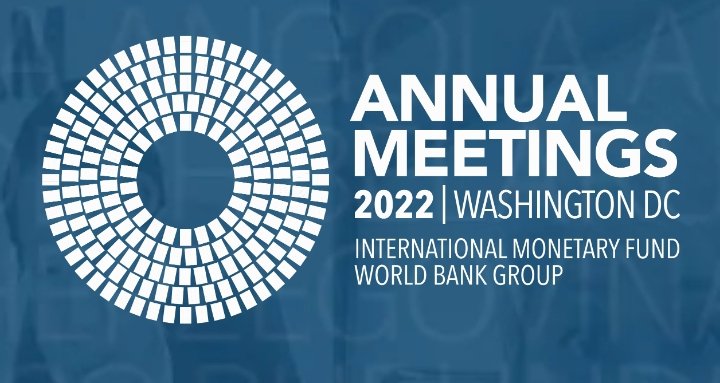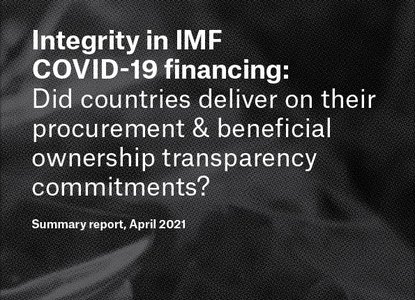IMF/WB Annual Meetings: beneficial ownership transparency high on the agenda

The Annual Meetings of the World Bank Group and the International Monetary Fund (IMF) have been taking place this week. It’s a place for leaders, experts, and activists to discuss how to tackle the multiple overlapping crises facing developing countries. Central to the agenda this year are resilience, recovery, and the energy transition. Transparency around who truly owns and controls companies is a crucial part of the puzzle in dealing with these complex issues, both in the shift towards clean energy and in strengthening measures against corruption, tax evasion, and more.
This week delegates met to discuss key issues such as financing the scaling-up of technologies to power this energy transition, which will create seismic shifts in extractive industries and fast growth in key new markets such as critical minerals. For the countries that produce the raw materials on which clean energy systems rely — many of which are emerging economies — the shift to the primary consumption of renewable energy requires a profound transformation.
For resource rich countries, research shows that the energy transition is likely to heighten corruption risks. When beneficial ownership transparency (BOT) reforms are implemented effectively, they can help reduce corruption risks throughout the value chain. But there is currently a big implementation gap, with over 110 countries globally committed to BOT, but fewer than 50 countries which have implemented registers.
As such, Open Ownership is delighted to see the new IMF handbook on BOT, Unmasking Control: A Guide to Beneficial Ownership Transparency, being showcased at the Annual Meetings this week. This book, which Open Ownership peer-reviewed, sets out the IMF’s guidance on how an effective beneficial ownership framework can reduce opportunities for corruption, tax evasion, and illicit financial flows, protect national security interests, and improve transparency across procurement. These are key use cases for BOT, and a welcome sign that the IMF is leaning into this agenda.
The book’s publication comes after several countries made commitments to BOT regarding the expenditure of IMF funds received through rapid response support made available as the COVID-19 pandemic took hold. Open Ownership research carried out in partnership with the Open Contracting Partnership studied the impact of these commitments. One of the key recommendations made in our research was for the IMF to provide clear technical guidance and resources to countries implementing beneficial ownership commitments. We therefore commend the publication of this book.
As we continue our work to improve transparency around company ownership, Open Ownership looks forward to drawing on this new resource in our support to governments implementing beneficial ownership reforms.
Related articles and publications
Publication type
Blog post
Topics
Extractives
Sections
Implementation
Open Ownership Principles
Central register

